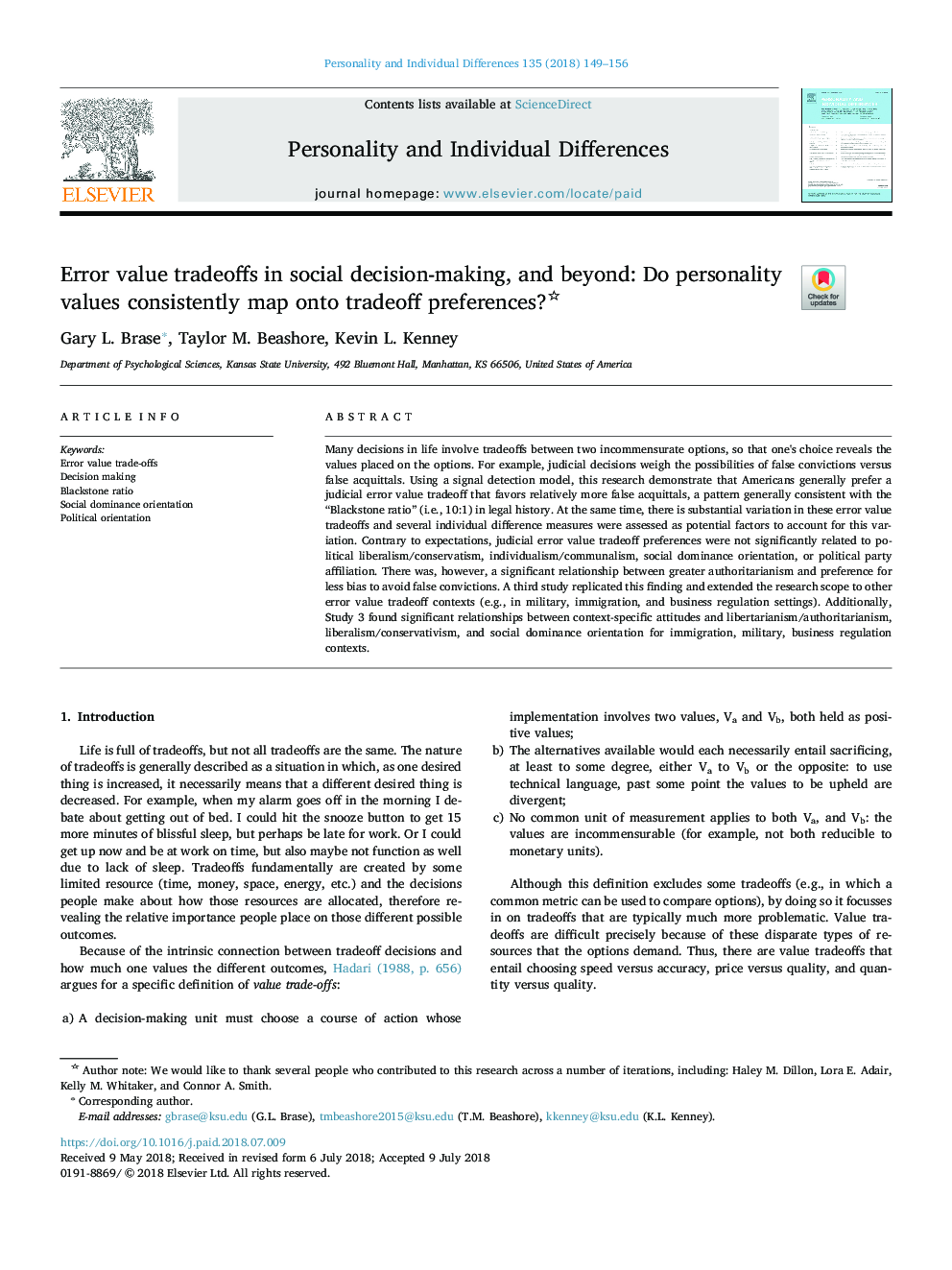| Article ID | Journal | Published Year | Pages | File Type |
|---|---|---|---|---|
| 7248376 | Personality and Individual Differences | 2018 | 8 Pages |
Abstract
Many decisions in life involve tradeoffs between two incommensurate options, so that one's choice reveals the values placed on the options. For example, judicial decisions weigh the possibilities of false convictions versus false acquittals. Using a signal detection model, this research demonstrate that Americans generally prefer a judicial error value tradeoff that favors relatively more false acquittals, a pattern generally consistent with the “Blackstone ratio” (i.e., 10:1) in legal history. At the same time, there is substantial variation in these error value tradeoffs and several individual difference measures were assessed as potential factors to account for this variation. Contrary to expectations, judicial error value tradeoff preferences were not significantly related to political liberalism/conservatism, individualism/communalism, social dominance orientation, or political party affiliation. There was, however, a significant relationship between greater authoritarianism and preference for less bias to avoid false convictions. A third study replicated this finding and extended the research scope to other error value tradeoff contexts (e.g., in military, immigration, and business regulation settings). Additionally, Study 3 found significant relationships between context-specific attitudes and libertarianism/authoritarianism, liberalism/conservativism, and social dominance orientation for immigration, military, business regulation contexts.
Related Topics
Life Sciences
Neuroscience
Behavioral Neuroscience
Authors
Gary L. Brase, Taylor M. Beashore, Kevin L. Kenney,
